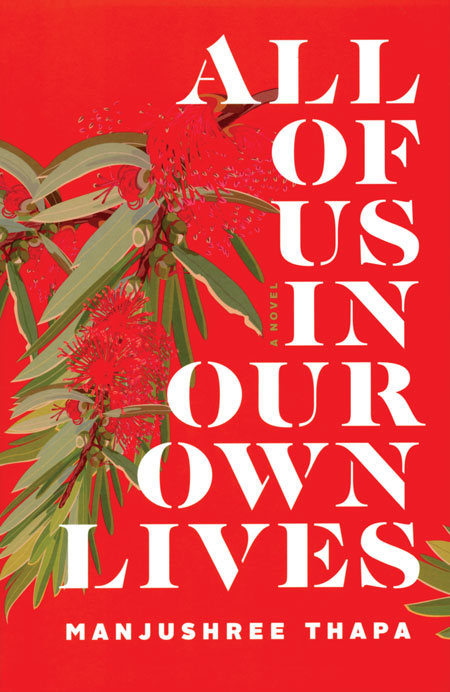
by Manjushree Thapa
Free Hand Books
2018/$21.95/300 pp.
Chances are if Westerners today think of Nepal at all, it is likely as a destination for adventure trekking and climbing. Maybe the devastating earthquake of 2015 will come to mind. A few of us may even recall Kathmandu as a hotspot for countercultural dropout generations of Beats and hippies. But these are limited stereotypes. Manjushree Thapa’s new novel, All of Us in Our Own Lives, reaches past vague clichés and offers readers a unique perspective on life in the contemporary Himalayan country. An experienced translator, biographer, essayist and novelist born in Kathmandu and raised in Nepal, Canada and the US, Thapa is ideally suited to the task.
All of Us in Our Own Lives shrewdly probes the question of “the real Nepal” through the eyes of its main character, the insider-outsider Ava Berriden, a Nepali-born adoptee raised in Canada by wealthy professional parents. The narrative opens with the adult Ava’s decision to flee an underwhelming marriage and corporate law career in Toronto, in exchange for a position with an international aid organization in her birth country. Through Ava, readers are provided with a seldom-seen glimpse into the world of the global humanitarian aid industry. This angle lends Thapa a source of endlessly rich irony—the Kathmandu headquarters of Ava’s office “felt like a fortress, ringed as it was by a high stone wall [and] hermetically sealed, as though to keep Nepal out.” The novel’s exposé of the “aid industry” as filled with briskly oblivious opportunists largely hell-bent on “climbing the next rung of the career ladder after their stint in Nepal,” sharpens its edge. Presumably in the name of verisimilitude, however, Ava’s job also presents the occasion for unfortunate stretches of eye-glazing business jargon and bewildering acronyms. Nor is Thapa ultimately able to envision any alternative to the social inequities her novel records.
But Ava’s conflicted situation—her simultaneous sense of imposture within and allegiance to her Nepali homeland—is compelling, and her gradual insight to the complexities of Nepal (and herself) is well realized. Rounding out Ava’s narrative are the storylines of Indira, Ava’s beleaguered Nepali feminist colleague, and of Sapana, a smart, plucky teenager. In rendering these characters, Thapa largely avoids caricature, though one exception would be Indira’s mother-in-law, who remains locked into Indira’s perception of her as an “old witch.”
In the end, all three narrative strands converge in ways that deftly complicate the novel’s title emphasis on independent lives. And unlike the language of bureaucracy that characterizes Ava’s professional life, Thapa’s descriptive prose of Nepal and Canada can be lyrical. It’s an illuminating and satisfying novel.
—Christine Wiesenthal is a professor at the U of A.

